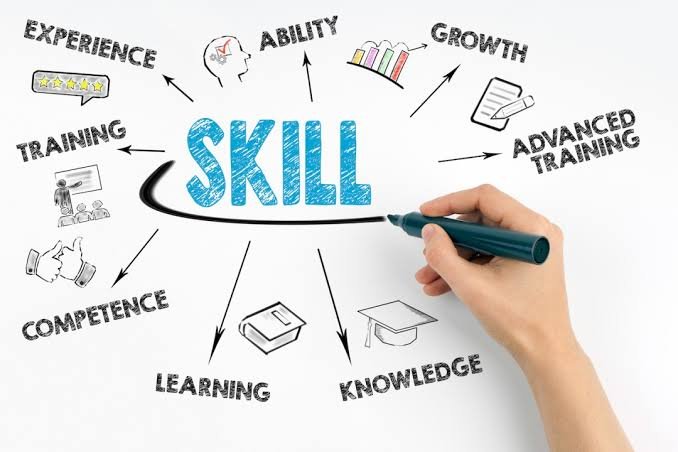 Your journey through life is a continuous learning experience. From your earliest days to the present, you’ve acquired a wealth of skills, knowledge, and experience. But the real magic happens when you can leverage these cumulative assets to propel yourself towards unending success. In this article, I’ll explore how to harness your life’s learnings and turn them into powerful tools for achieving your goals.
Your journey through life is a continuous learning experience. From your earliest days to the present, you’ve acquired a wealth of skills, knowledge, and experience. But the real magic happens when you can leverage these cumulative assets to propel yourself towards unending success. In this article, I’ll explore how to harness your life’s learnings and turn them into powerful tools for achieving your goals.
Understanding the Value of Your Cumulative Assets
Before we delve into the practical steps, it’s essential to recognize the value of the skills, knowledge, and experience you’ve gathered over the years. Your life’s journey has provided you with a unique set of abilities and insights that no one else possesses. These assets are your differentiators, the things that set you apart from the crowd and make you a valuable resource.
1. Self-Reflection: The Starting Point
Leveraging your cumulative skills, knowledge, and experience starts with self-reflection. Take a moment to consider the following:
What are the skills I’ve developed over the years?
What really makes me unique and sets me apart from others?
What knowledge have I gained through formal education and life experiences?
How have my past experiences shaped me?
Understanding these aspects is crucial because it helps you identify your strengths and areas where you can excel. By knowing what you’re good at, you can make informed decisions about how to apply your skills.
2. Define Your Goals
Once you’ve assessed your skills and knowledge, it’s time to set clear and achievable goals. Your goals should align with your passions and the areas where you feel most competent. This alignment is essential because it maximises your motivation and determination. Your goals could be personal, like improving your health or relationships, or professional, such as advancing in your career or starting a business. The key is to make them specific, measurable, attainable, relevant, and time-bound (SMART).
3. Bridge the Gaps
After identifying your goals, take a closer look at the skills, knowledge, and experience you already possess and those you need to reach your objectives. This process reveals the gaps between where you are now and where you want to be.
For example, if your goal is to start a successful business, you might need to acquire specific skills in marketing, finance, or management. Once you’ve identified these gaps, you can create a plan to fill them. This could involve taking courses, seeking mentors, or learning from relevant books and resources.
4. Networking and Collaboration
No matter how skilled or knowledgeable you are, there will always be areas where you lack expertise. This is where collaboration and networking come into play. Leverage your accumulated skills to build valuable relationships with others who can complement your abilities.
Networking opens doors to new opportunities, insights, and partnerships. Whether in your personal or professional life, building a strong network can help you overcome challenges and access valuable resources.
5. Adaptability and Learning
The world is constantly changing, and the skills and knowledge you’ve accumulated may become outdated. To stay relevant, you must be adaptable and willing to continue learning. Embrace lifelong learning as a part of your journey to success.
This might involve taking short courses, attending seminars, or simply staying updated with the latest trends in your field. The ability to adapt and learn is itself a valuable skill, and it can help you leverage your cumulative assets effectively.
6. Confidence and Self-Belief
Confidence in your abilities is crucial when leveraging your cumulative skills and experiences. If you doubt your capabilities, you’re less likely to take risks or pursue ambitious goals. Develop self-belief by acknowledging your past successes and trusting in your ability to learn and adapt.
7. Action and Persistence
Leveraging your cumulative skills, knowledge, and experience requires consistent action and persistence. Many individuals have the necessary skills and knowledge, but they fail to act on them. They procrastinate or give up when faced with challenges.
To succeed greatly, you must take action and persist in the face of adversity. Overcoming obstacles and setbacks is often where your cumulative experience becomes most valuable. You’ve likely encountered similar challenges before and have the wisdom to navigate them effectively.
8. Mentorship and Giving Back
Mentorship is a powerful way to leverage your accumulated knowledge and experience. By mentoring others, you not only contribute to their growth but also gain new perspectives and insights. This reciprocal process can be incredibly enriching, both personally and professionally.
Moreover, giving back to your community or industry allows you to apply your skills and knowledge in a meaningful way. Whether through volunteering, teaching, or supporting charitable initiatives, your cumulative assets can have a positive impact beyond your personal goals.
9. Measure and Adjust
Finally, as you progress toward your goals, regularly assess your achievements and make adjustments as needed. Are you getting closer to your objectives? Are there new skills or knowledge areas you should focus on? Have your experiences provided valuable insights that can be used to refine your path?
Measurement and adjustment are essential to ensure you’re making the most of your cumulative assets and that you remain on the right track to success.
In conclusion, your life’s journey thus far has equipped you with a unique set of skills, knowledge, and experiences. To leverage these cumulative assets effectively, you need to recognize their value, set clear goals, bridge knowledge gaps, network, remain adaptable, build confidence, take consistent action, consider mentorship, give back, and regularly measure and adjust. By doing so, you can harness your past to create a successful and golden future.

